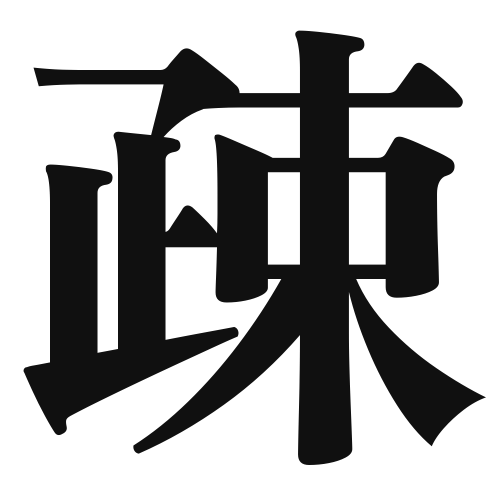1. Overview of Meaning
The kanji “疎” (pronounced “so”) generally means “distant,” “sparse,” or “neglected.” It conveys a sense of lack of closeness or connection, whether in relationships, physical space, or understanding.
2. Formation and Radical
Formation of the Kanji: The kanji “疎” is a compound character (会意文字) that combines elements to convey its meaning. It consists of the radical for “skin” (皮) and the character “so” (疏), which relates to the idea of being thin or sparse.
Radical: The radical for “疎” is “疒” (meaning “sickness” or “disease”), which is often associated with health and well-being, contrasting with the idea of neglect or distance.
3. Examples of Usage
Common Words and Phrases: Some frequently used words that include “疎” are:
- 疎外 (sogai) – alienation
- 疎遠 (soen) – estrangement
Example Sentences in Daily Conversation:
- 彼とは最近疎遠になってしまった。
(I have become distant from him recently.) - この地域は人口が疎で、静かです。
(This area has a sparse population and is quiet.)
4. Synonyms and Antonyms
Similar Kanji: A similar kanji is “疏” (so), which also conveys a sense of being sparse or thin but is often used in a more technical or literary context.
Antonyms: An antonym for “疎” is “密” (mitsu), which means “dense” or “close,” indicating a strong connection or closeness.
5. Cultural and Historical Background
Relation to Japanese Culture: The concept of “疎” is often reflected in Japanese culture, where maintaining close relationships is valued. The idea of becoming “疎遠” can carry a sense of loss or regret.
Proverbs and Idioms: One relevant proverb is “疎かにする” (osokanisuru), which means to neglect or overlook something important, emphasizing the negative consequences of distance or neglect.
